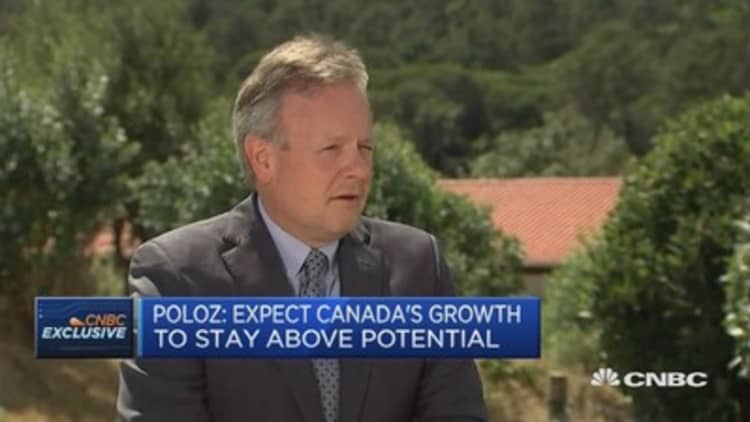
After turning the corner from a downturn in oil prices, growth in the Canadian economy will likely moderate in the coming months but still remain "above potential," the country's central bank governor said in an interview with CNBC.
"It's pretty encouraging. We have had over six months of pretty steady, and in fact in the first quarter, really strong growth, surprisingly so… We do think it's going to moderate from there, not to slow down dramatically but to be more normal on pace, but still above potential," Bank of Canada Governor Stephen Poloz said.
"That's the important thing. It means that we're absorbing excess capacity that was built up in the wake of the crisis and then built up again in the wake of the oil shocks a couple of years ago."
Energy-reliant Canada lost more than 60 billion Canadian dollars ($45.6 billion) in national income after oil prices plunged by over $50 per barrel in 2014. That prompted the central bank to cut rates by 50 basis points the following year in an attempt to revive the economy.
Poloz said those cuts appeared to have "done their job." The country reported 3.7 percent annualized economic growth in the first quarter this year, but upcoming re-negotiation of the North American Free Trade Agreement (NAFTA) is a headwind as businesses have held back investment decisions.
He declined to comment on the central bank's next move but noted that the Bank of Canada has been striking an independent course from the Federal Reserve particularly in the last two years.
"I think markets understood that. We didn't have any unusual exchange rate volatility and we're not expecting any going forward. The economies are increasingly in sync, which is a positive. Our growth has been broadening, just as the U.S. did over the last couple of years, we're just a little behind them," he said.



